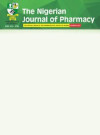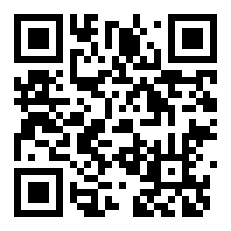Self-medication with antibiotics and anti-malarial drugs among rural dwellers in Enugu State, Nigeria
Keywords:
Self-medication, Antibiotics, Anti-malarial drugs, NigeriaAbstract
Background: Responsible self-medication is useful in preventing and treating minor illnesses that may not require medical consultation. However, Self-medication has been reported to cause increased costs, increased antimicrobial resistance, prolonged suffffering and drug dependence. This study aimed to assess the practice of and associated risk factors for self-medication with antibiotics and antimalarial drugs among rural dwellers in South-Eastern Nigeria.
Methods: The study was a cross sectional survey carried out in Enugu state, Nigeria. Amultistage sampling was done to recruit participants for the study and a 30-item self-administered questionnaire was used to elicit information from the respondents.
Results: A total of 464 out of the 500 respondents recruited completed the survey (92.8%) of which 437 (94.2%) and 425 (91.6%) of them had self-medicated with antibiotics and antimalarial drugs concurrently respectively. More than three-quarters of the study respondents reported self medicating with antibiotics and anti-malarial drugs concurrently 359 (77.4%).The most common symptom for which antibiotics were used for self-medication was nasal condition 337 (72.6%). The most common symptom for w hich anti-malarial drugs were used for self-medication was fever. The most used antibiotic for self-medication was tetracycline 331 (71.3%) and sulfadoxine pyrimethamine 314 (67.7%) for malaria.
Conclusion: Self-medication with antibiotics and anti-malarial drugs was high among the rural dwellers surveyed in this study. There is need for better regulation of prescription drugs in Nigeria.
References
World Health Organization (1998). The role of the pharmacist in self-care and self-medication.
Awad A, Eltayeb I, Matowe L, Thalib L (2005). Self-medication with antibiotics and antimalarials in the
community of Khartoum State, Sudan. J Pharm Pharm Sci 12; 8(2):326 - 31. https://pubmed.ncbi.nlm.nih.gov/16124943/
Geissler PW, Nokes K, Prince RJ, Achieng' Odhiambo R, Aagaard-Hansen J, Ouma JH (2000). Children and medicines: Self-treatment of common illnesses among Luo schoolchildren in western Kenya. Soc Sci Med 50 (12): 1771 - 8 3. https://doi.org/10.1016/s0277-9536(99)00428-1
James H, Handu SS, Al Khaja KAJ, Otoom S, Sequeira RP(2006). Evaluation of the knowledge, attitude and practice of self-medication among first-year medical students. Med Princ Pract 15(4):270-5. https://doi.org/10.1159/000092989
Rohde, C., Wittmann, J., & Kutter, E. (2018). Bacteriophages: A Therapy Concept against MultiDrug-Resistant Bacteria. Surgical Infections, 19(8), 737–744. https://doi.org/10.1089/sur.2018.184
Vuckovic N, Nichter M (1997). Changing patterns of pharmaceutical practice in the United States. Soc Sci Med 44(9):1285-302. https://doi.org/10.1016/s0277-9536(96)00257-2
Tuyishimire J, Okoya F, Adebayo AY, Humura F, Lucero-Prisno DE (2019). Assessment of self- medication practices with antibiotics among undergraduate university students in Rwanda. Pan Afr
Med J 19; 33: 307 https://doi.org/10.11604/pamj.2019.33.307.18139
WHO. Organization World Health. Global Strategy for Containment of Antimicrobial Resistance (2001).
Center for Disease Control and Prevention (2013). Antibiotic resistance threats in the United States.
Prasad N, Sharples KJ, Murdoch DR, Crump JA (2015). Community prevalence of fever and relationship with malaria among infants and children in low-resource areas. Am J Trop Med Hyg 93(1):178-80 https://doi.org/10.4269/ajtmh.14-0646
Kyu HH, Maddison ER, Henry NJ, Mumford JE, Barber R, Shields C, et al (2018). The global burden of
tuberculosis: results from the Global Burden of Disease Study 2015. Lancet Infect Dis 18(3):261-284
https://doi.org/10.1016/S1473-3099(17)30703-X
Bhatt S, Weiss DJ, Cameron E, Bisanzio D, Mappin B, Dalrymple U, et al (2015). The effect of malaria
control on Plasmodium falciparum in Africa between 2000 and 2015. Nature 526: 207 – 211 https://www.nature.com/articles/nature15535
Maze MJ, Bassat Q, Feasey NA, Mandomando I, Musicha P, Crump JA (2018). The epidemiology of
febrile illness in sub-Saharan Africa: implications for diagnosis and management. Clin. Microbiol.
Infect. 24(8): 808 - 814. https://doi.org/10.1016/j.cmi.2018.02.011
White NJ, Nosten F, Looareesuwan S, Watkins WM, Marsh K, Snow RW, et al (1999). Averting a malaria disaster. Lancet 353 (9168): 1965 - 7 https://doi.org/10.1016/s0140-6736(98)07367-x
Esan DT, Fasoro AA, Odesanya OE, Esan TO, Ojo EF, Faeji CO (2018). Assessment of Self-Medication
Practices and Its Associated Factors among Undergraduates of a Private University in Nigeria. J Environ Public Health ecollection. https://doi.org/10.1155/2018/5439079
Babatunde OA, Fadare JO, Ojo OJ, Durowade KA, Atoyebi OA, Ajayi PO, et al (2016). Self-medication
among health workers in a tertiary institution in South-West Nigeria. Pan Afr Med J 24: 312. https://doi.org/10.11604/pamj.2016.24.312.8146
Afolabi AO. Factors influencing the pattern of self-medication in an adult Nigerian population (2008). Ann Afr Med 7:120-7. https://doi.org/10.4103 / 1596-3519.55666
Ocan M, Obuku EA, Bwanga F, Akena D, Richard S, Ogwal-Okeng J, et al (2015). Household antimicrobial self-medication: A systematic review and meta-analysis of the burden, risk factors and outcomes in developing countries. BMC Public Health15:742 https://doi.org/10.1186/s12889-015-
-3
Haseeb A, Bilal M (2016). Prevalence of using non prescribed medications in economically deprived
rural population of Pakistan. Arch Public Heal22;74:1 https://doi.org/10.1186/s13690-015-0113-9 20.
Olayemi OJ, Olayinka BO, Musa AI (2010). Evaluation of antibiotic self-medication pattern amongst undergraduate students of Ahmadu Bello University (Main Campus), Zaria. Res J Appl Sci Eng Technol 2(1):35-38
Fakeye TO, Adisa R, Olatunji E (2010). Self medication among hospitalized patients in selected secondary health facilities in South Western Nigeria. Pharm Pract 8(4): 233 – 237
https://doi.org/10.4321/s1886-36552010000400005
World Bank Group (2017). Drug-resistant infections: A Threat to Our Economic Future. https://www.worldbank.org/en/topic/health/publication/drug-resistant-infections-a-threat-to-our-economic-future Accessed: 2021-01-05
Assael LA(2006). The Pill Culture, the Pill Society. J. Oral Maxillo fac. Surg. 64(9):1331 - 2
https://doi.org/10.1016/j.joms.2006.07.002
Flaiti M Al, Badi K Al, Hakami WO, Khan SA(2014). Evaluation of self-medication practices in acute
diseases among university students in Oman. J Acute Dis 3(3);249-252. https://doi.org/10.1016/S2221-
(14)60056-1
Chipwaza B, Mugasa JP, Mayumana I, Amuri M, Makungu C, Gwakisa PS (2014). Self-medication with anti-malarials is a common practice in rural communities of Kilosa district in Tanzania despite the reported decline of malaria. Malar J 13(1):1–11.
McCombie S (2002). Self-treatment for malaria: the evidence and methodological issues. Health Policy Plan 17(4): 333 - 44. https://doi.org/10.1093/heapol/17.4.333
Ajibola O, Omisakin O, Eze A, Omoleke S(2018). Self-Medication with Antibiotics, Attitude and Knowledge of Antibiotic Resistance among Community Residents and Undergraduate Students in Northwest Nigeria. Diseases 6(2): 32. https://doi.org/10.3390/diseases6020032
Biswas M, Roy MN, Manik MIN, Hossain MS, Tapu STA, Moniruzzaman M, et al. (2014). Self medicated antibiotics in Bangladesh: A cross-sectional health survey conducted in the Rajshahi City. BMC Public Health 14:847. https://doi.org/10.1186/1471-2458-14-847
Torres NF, Chibi B, Middleton LE, Solomon VP, Mashamba-Thompson TP (2019). Evidence of factors influencing self-medication with antibiotics in low and middle-income countries: a systematic scoping review. Public Health168:92-101. https://doi.org/10.1016/j.puhe.2018.11.018
Abdulraheem I, Adegboye A, Fatiregun A (2016). Self-medication with Antibiotics: Empirical Evidence from a Nigerian Rural Population. Br J Pharm Res 11(5); 1 - 13. https://doi.org/10.9734/BJPR/2016/25268
Widayati A, Suryawati S, De Crespigny C, Hiller JE (2011). Self medication with antibiotics in Yogyakarta City Indonesia: A cross sectional population-based survey. BMC Res Notes 4:491. https://doi.org/10.1186/1756-0500-4-491
Ajibola O, Omisakin O, Eze A, Omoleke S (2018). Self-Medication with Antibiotics, Attitude and Knowledge of Antibiotic Resistance among Community Residents and Undergraduate Students in Northwest Nigeria. Diseases 6(2): 32. https://doi.org/10.3390/diseases6020032

Published
How to Cite
Issue
Section
License

This work is licensed under a Creative Commons Attribution-NonCommercial 4.0 International License.


